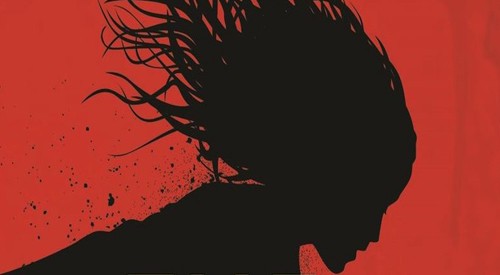Books & Culture
The Novel as Self: The Small Backs of Children by Lidia Yuknavitch

“Every self is a novel in progress. Every novel a lie that hides the self,” the unnamed writer central to Lidia Yuknavitch’s The Small Backs of Children tells us after cataloging a litany of personal traumas, disasters, and loves. The writer is conscious of the act of writing and aware of the reader, at times directly addressing us: “This, reader, is a mother-daughter story.”
But to simplify Yuknavitch’s novel to the writer’s prescription is to miss the wider picture. It’s important to remember how she speaks of the self: we are novels en media res, and this construction hides us, even as we create.
This is not what stood out initially when I read The Small Backs of Children earlier this month. My inability to fully understand what I had read weighed on me first. What seems like a straightforward, if not unusual, story based on the cover’s description is far more convoluted than any summary can explain. To start: there is a young girl — “no longer a child” — age six who walks into the snow a year “after the blast that has atomized her entire family in front of her eyes.” The girl observes a wolf chew off its own leg to free itself from a trap, and then “pisses” on the trap and the bloodied leg.
“This is how the sexuality of a girl is formed — an image at a time — against white; taboo, thoughtless, corporeal.”
And with this sentence, and the alarming image of an orphan creating and forming her perception of image, later art, at a site of violence, Yuknavitch lays out the thesis of her novel: life, sex, and violence collide to form something larger: art.
The nameless young girl isn’t the only practitioner. There is the photographer who takes the photo of the young girl escaping from her burning home: the photographer, an American, feels intrusive in a place where “none of this has made the news,” a stand-in for any number of recent conflicts in Eastern Europe. The photo will pass hands and gain the photographer recognition and awards, and fall into the hands of the unnamed writer — a former lover of the photographer. The photo resurfaces and unlocks the pain the writer keeps just below the surface — the birth of a stillborn child — dooming her to a hospital bed, lying depressed while she rests in the “vast whiteness” of memory and time.
The Small Backs of Children requires the reader to let go and give into the prose and story. Why do the writer’s friends so determinedly latch onto the idea of saving the young girl and bringing her to the writer? Once I had finished the book, I knew I had read something brilliant; I just could not quantify it, which is perhaps the wrong impulse. I read interviews with Yuknavitch, trying to read between the lines, and found something direct instead: Yuknavitch had had a stillborn daughter, which she addresses in her 2011 memoir The Chronology of Water. I read it, and the plot lines began to converge, so that I questioned who was the writer of The Small Backs of Children and who was the writer of The Chronology of Water?
While it’s an assumption to say that the writer is a stand-in for Yuknavitch, recall the writer’s lines: “Every self is a novel in progress. Every novel a lie that hides the self.” In that sense, Yuknavitch’s novel reads as the creative proof of her memoir: while she shies away from redemption narratives, she ends The Chronology of Water with this instruction: “Make up stories until you find one you can live with.” Yuknavitch’s personal journey towards that story — filled with “rituals of pain and pleasure” and art — is mirrored in her novel. The story of the writer’s friends uplifting her needs and caring for her in such a radical way is a brave act of family making. Yuknavitch notes at the end of her memoir that these families do not need to prescribe to any set heteronormative standards. It’s a serendipitous literary echo found in Maggie Nelson’s hybrid memoir The Argonauts, published this year by Graywolf press.
The Small Backs of Children is ultimately an examination of the spectrum of creation — whether of self or art — and how often creation can uneasily exist along with destruction.

by Lidia Yuknavitch










